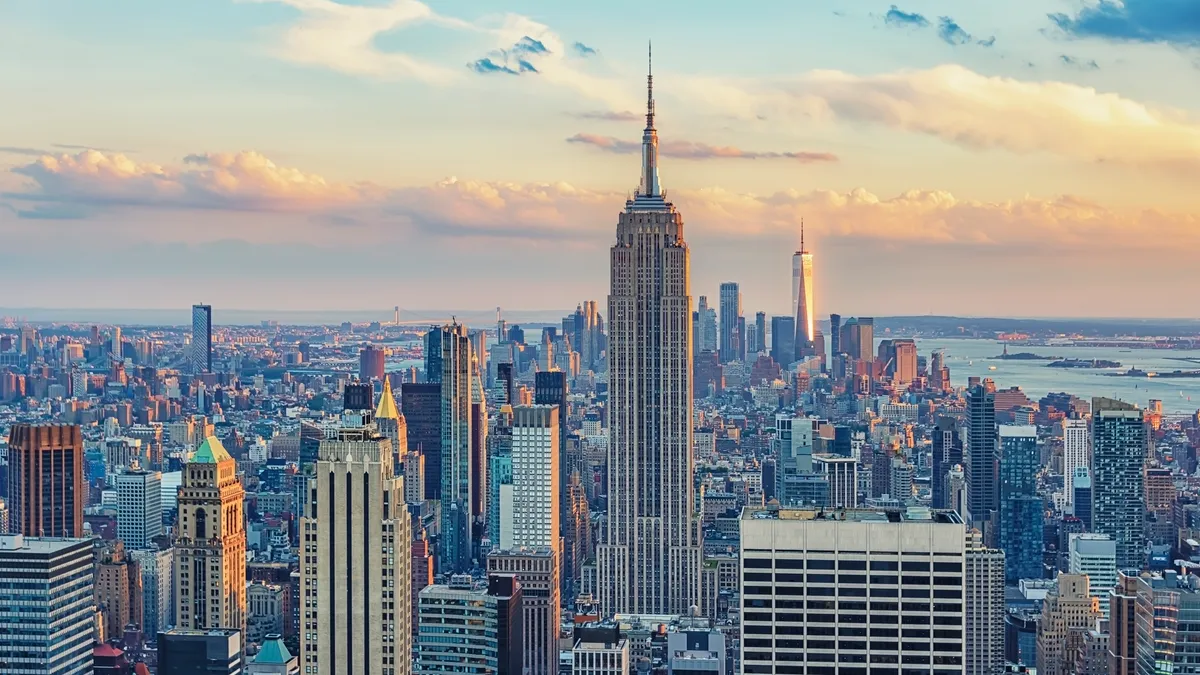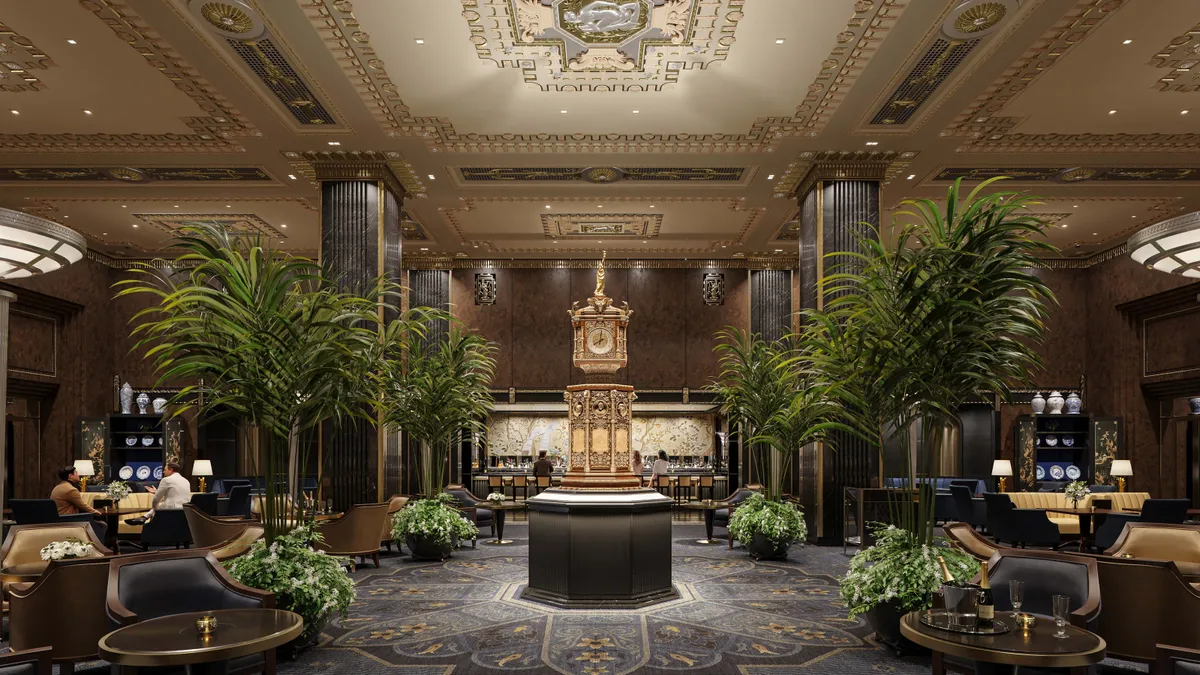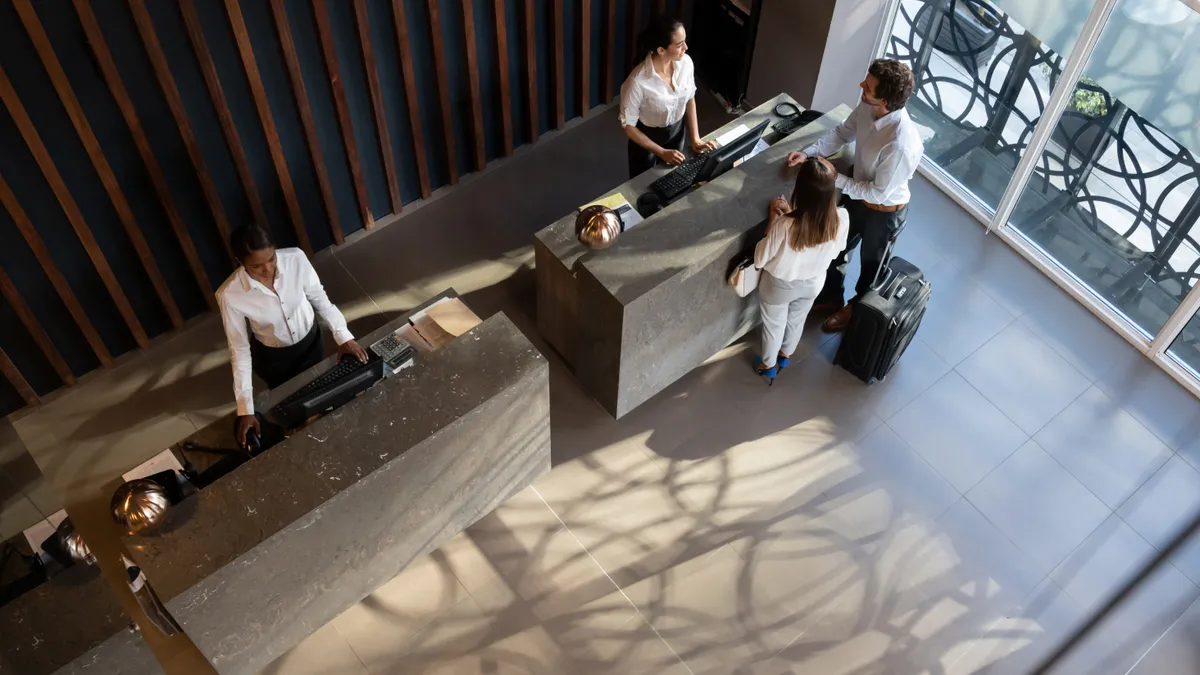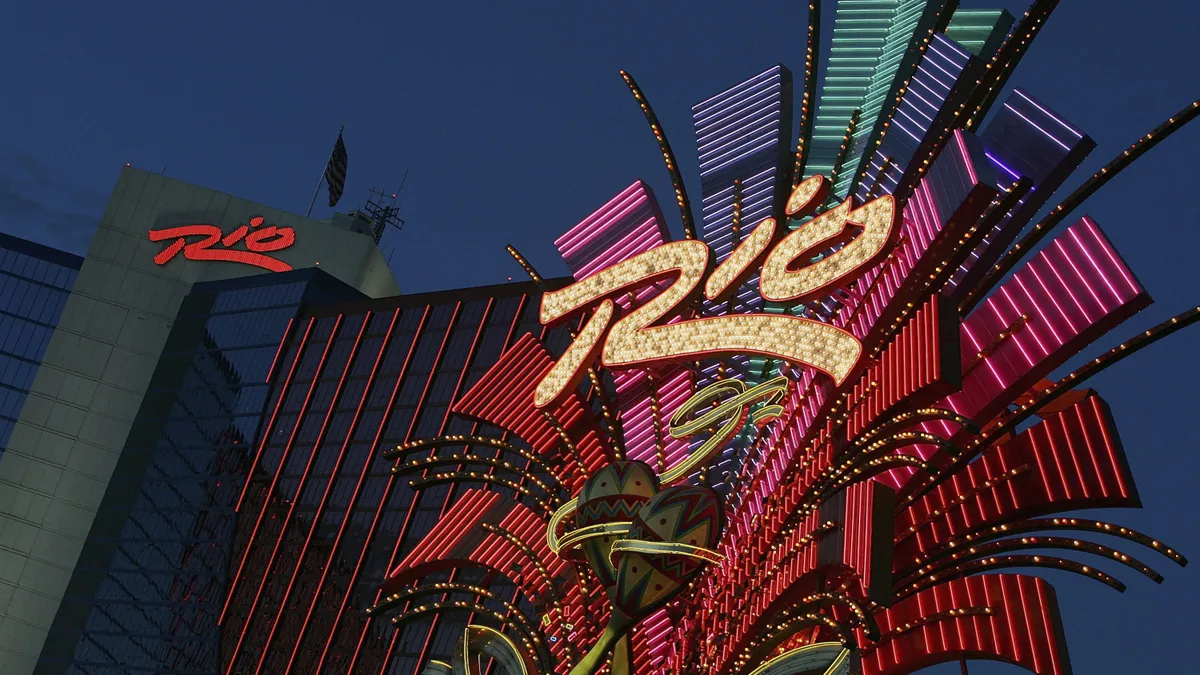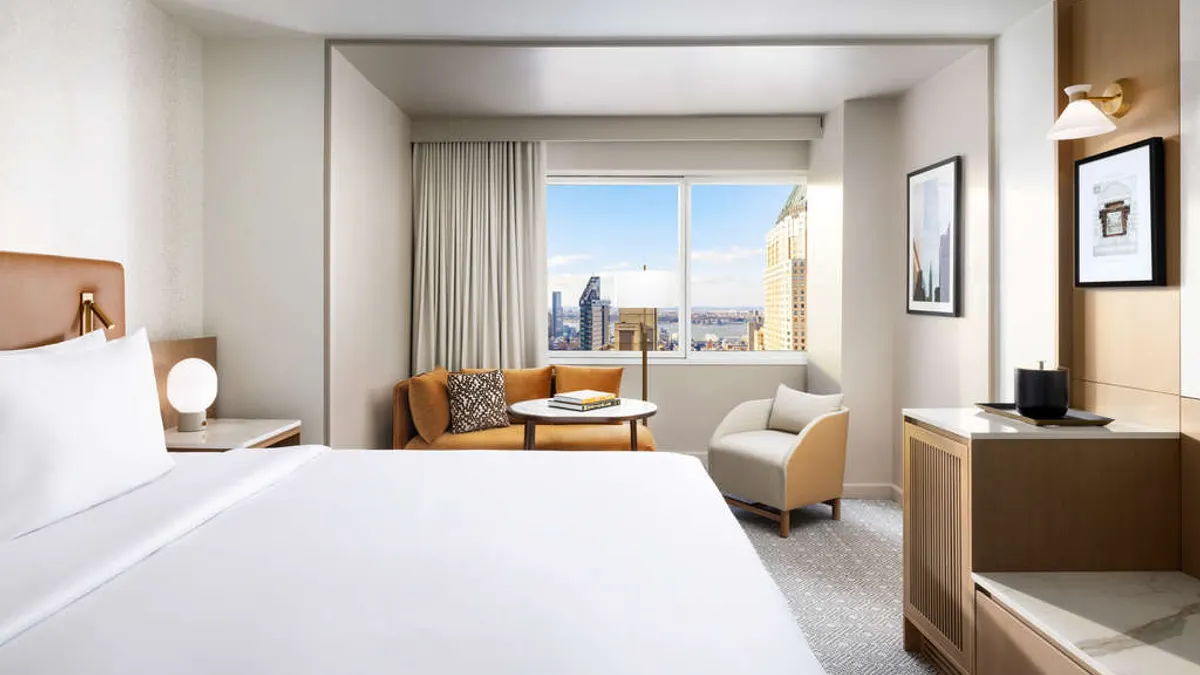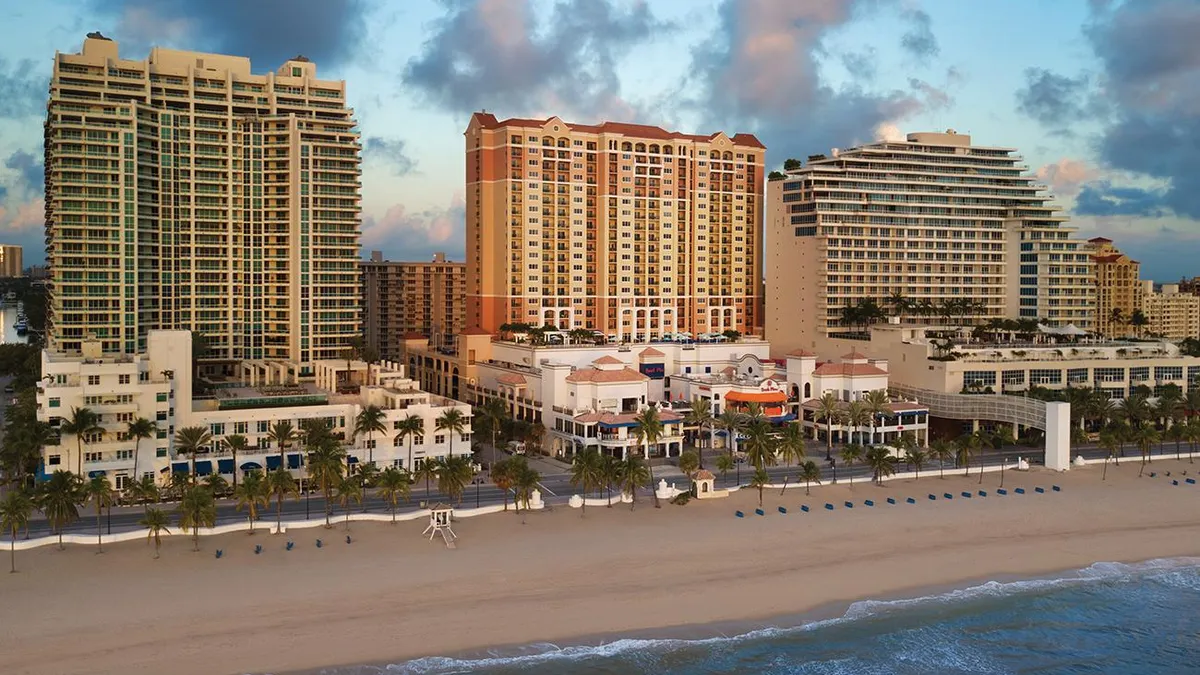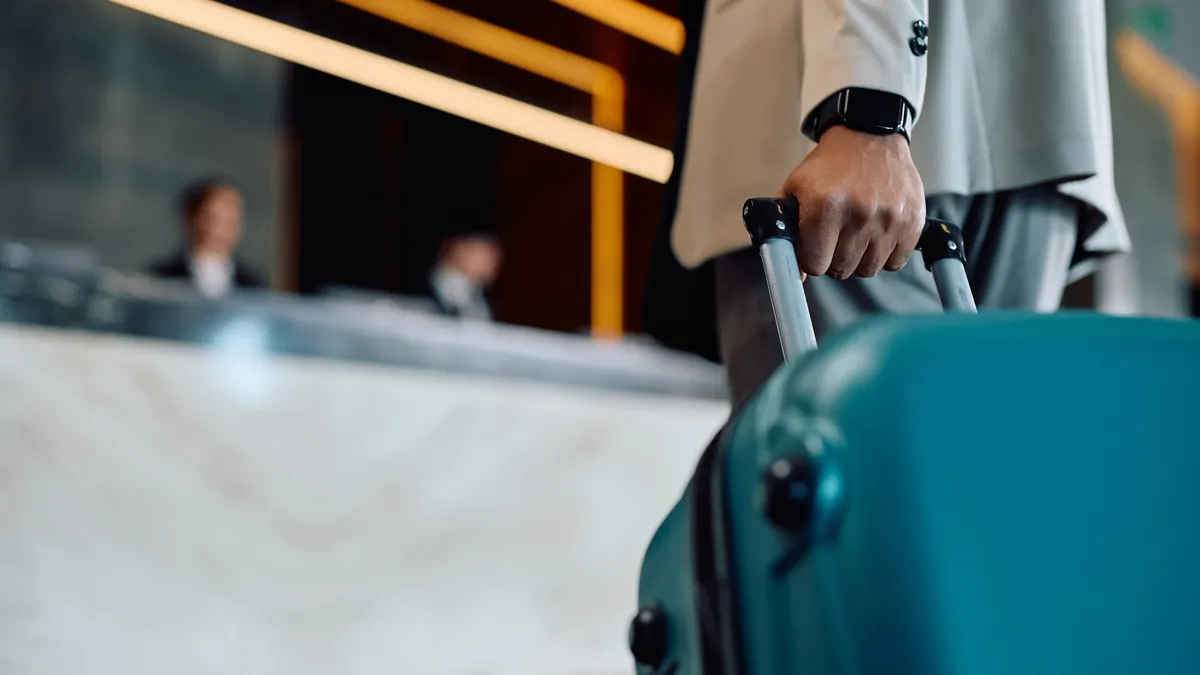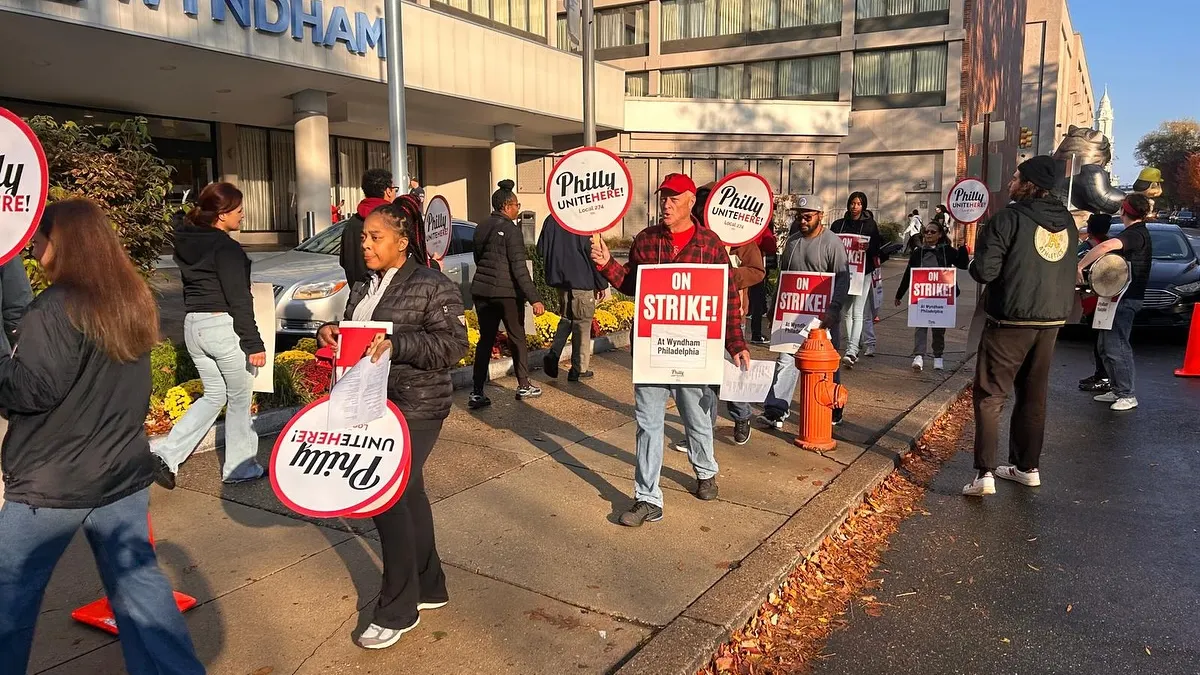Several months after the controversial Safe Hotels Act passed in New York City, the law is set to take effect on May 3.
The law, which requires hotel operators to obtain a license in order to operate in the city, has been a point of contention between local hotel owner associations and the New York City Council — as well as supporting union organizations — since government officials proposed the legislation in July of last year.
Hotel associations, including the Asian American Hotel Owners Association and the American Hotel & Lodging Association, actively rallied against the bill last fall, claiming it would have “destructive” and “devastating” effects on New York’s hotels and the city’s economy at large. Before being signed into law by New York City Mayor Eric Adams in November, the legislation was revised several times.
As the city gears up for the law to take effect this weekend, Hotel Dive spoke with Sarah Bratko, AHLA’s vice president of government affairs, about the broader implications of the law and must-know details for hotel owners.
Requirements for NYC hotels
Under the Safe Hotels Act, businesses must have a hotel license if they operate, own, lease or manage a hotel in New York City and control its day-to-day operations, including the employment of those working at the hotel, according to the New York City Department of Consumer and Worker Protection. Businesses must have a separate license for each hotel they operate.
The application for the license is currently live on the department’s website and asks for general information about the hotel owner. The term for the license is two years, and there is a license fee of $350, the New York City Council previously announced.
In addition to the online application, hoteliers must complete the Hotel License Application Supplement form, which asks them to provide specific information about their property and operations.
The supplemental form also lays out the requirements hotels must comply with under the licensing law, including that operators display their license publicly; hotels have continuous coverage of their front desk, including for overnight shifts; and hotels with 100 or more guest rooms directly employ all “core employees,” encompassing housekeeping, front desk and front service roles — meaning they are prohibited from subcontracting these workers.
Additional requirements laid out on DCWP’s website specify that NYC hotels must provide daily housekeeping unless a guest declines the service as well as equip workers entering an occupied room with panic buttons.
This documentation first appeared on DCWP’s website last week, Bratko shared. However, many questions remain ahead of the official implementation because further details about how the law will be enforced were unavailable on DCWP's website as of May 1, according to Bratko.
This information — the regulations that govern the rule, per Bratko — is anticipated to be released on May 2, she noted, though that timing gives owners a short runway to read, digest and understand the details of the law and compliance terms. DCWP could not be reached for a Hotel Dive request for comment.
“This is the exact situation that we did not want to have happen, unfortunately, and one that we had flagged during the actual legislative process,” Bratko told Hotel Dive.
Additionally, there are unanswered questions about exemptions for hotels of a certain size or those that are already under a collective bargaining agreement, noted Bratko.
“There’s still a lot of questions about who actually needs to apply, and there is a lot of discomfort from the industry in applying for a license when [hotels] don't actually know what the rules are,” she said.
Hotel operators that violate the license conditions will be subject to civil penalties, according to the New York City Council. DCWP issued a notice Thursday stating that while the law takes effect on May 3, hotels will not be subject to enforcement until May 17.
To Bratko’s understanding, as long as a hotel has applied for the license by the enforcement deadline, it will be able to continue operations. More details will become clear, though, upon the release of the law’s regulations, she said.
Broader industry implications
The confusion surrounding the licensing law is amplified by the fact that NYC is a guinea pig for legislation nationwide, Bratko noted.
“This is obviously the most extreme [hotel] licensing bill that we have seen anywhere,” Bratko said. “There is no other municipality that has anything even analogous to this. Nothing requires these operational and labor mandates. Being the first of its kind means that it's always going to be the hardest.”
Similar hotel licensing legislation has been entertained in Los Angeles and San Francisco following the passing of the Safe Hotels Act, Bratko noted. While no concrete actions have been taken in those cities, it “would be naive to assume this isn’t going to be packaged up and rolled out in other markets,” Bratko said.
Beyond the confusion surrounding its implementation, the law puts pressure on NYC hotels at a time when they’re already facing challenges, including labor shortages.
Camilo Torres, who owns Lumina HR, a company that provides contracted labor services to hotels in NYC, previously told Hotel Dive the Safe Hotels Act, and its direct hiring clause, will result in a “big influx of employees trying to get into hotels directly, and it’s going to cause a bottleneck” with many workers “out of jobs.”
Meanwhile, for the many NYC subcontractors who work across multiple industries, Bratko noted, the law’s direct hiring requirement may stop them from working at hotels altogether because subcontracted work provides them more flexibility.
The NY/NJ Hotel & Gaming Workers Union, however, supported the legislation, which it previously said would “curb the use of [exploitative] subcontracting agencies in most hotels.” The union has also claimed the law will safeguard certain health and safety protections for workers.
Another challenge is mounting economic uncertainty.
“Our industry thrives on predictability, and having any type of unpredictability makes it challenging to do business,” Bratko said. “Right now, for better or for worse, we are living in very unpredictable times, and there is a lot of questions about what’s happening on the international level, the national level and even the local level, and that is really adding to the strain and the stress on the industry — and not just in New York.”
Big hotel players Hyatt Hotels and Wyndham Hotels & Resorts downgraded their respective 2025 RevPAR growth outlooks earlier this week, citing dampened domestic travel demand.


